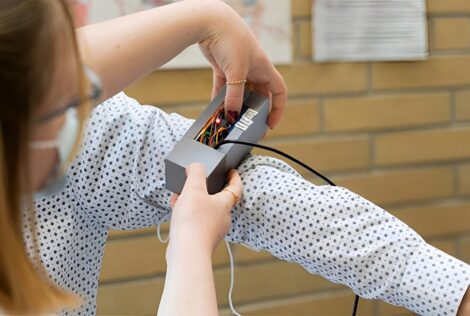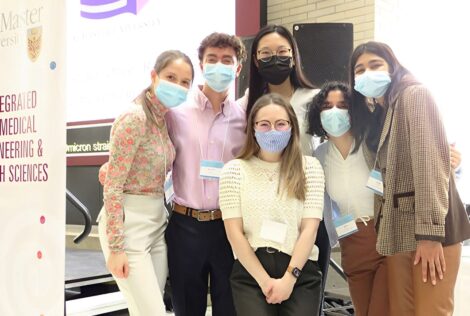
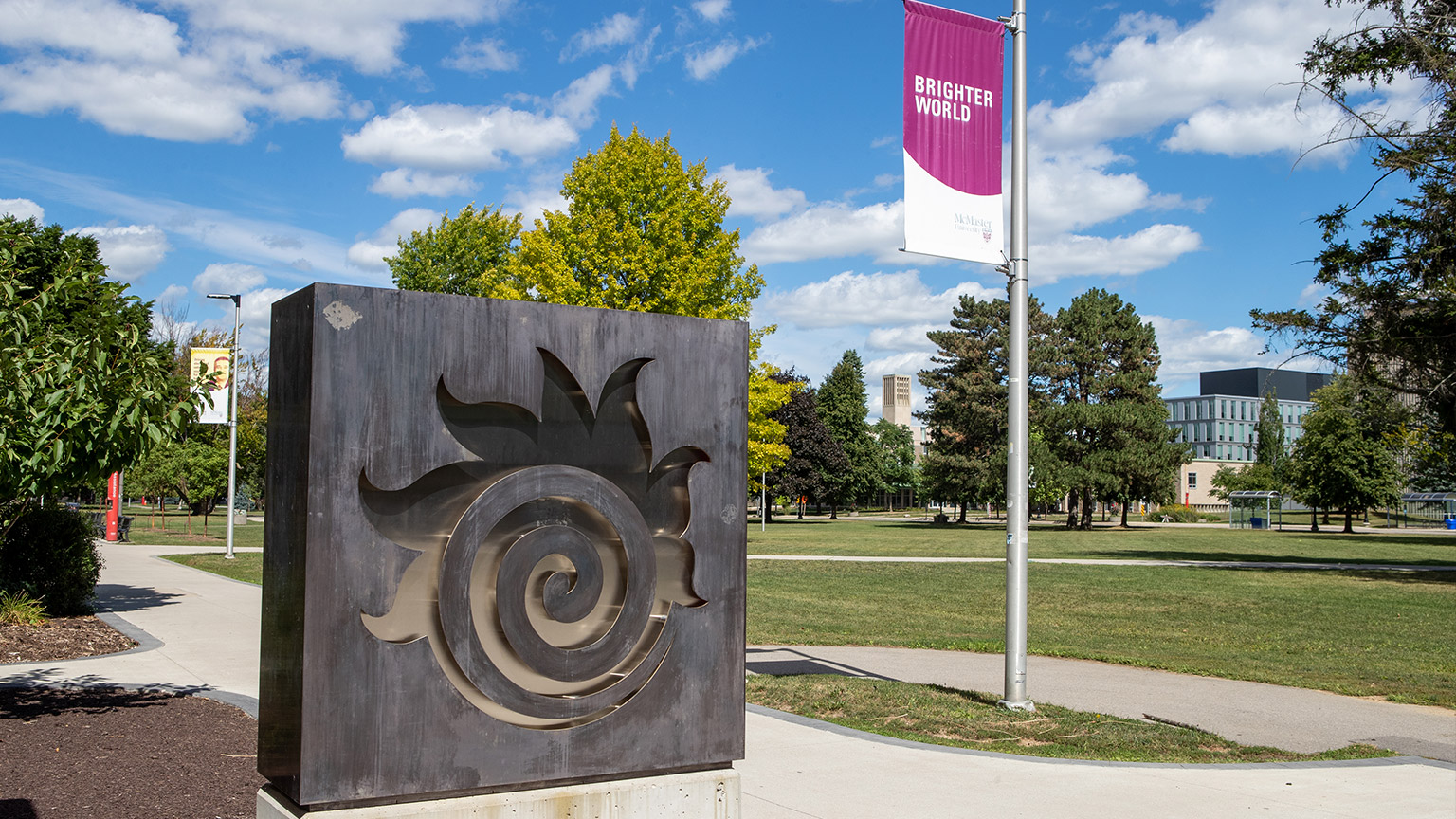
On February 15th the 1P10 Mid-Winter Showcase took place, and there was no shortage of innovative and cutting-edge ideas presented by first year iBioMed students.
1P10 is a first-year course in which students complete 5 unique individual design projects, each project relating to solving a problem of a biomedical nature. Students get to work in teams and propose biomedical engineering solutions to real-world healthcare problems.
The Mid-Winter Showcase highlights Design Project 3 – a project where students design a wearable device that incorporates one or more sensors and communicates with the user. The device is intended to have applications in areas of health, fitness or active living, and teams pitch their solutions in a Dragon’s Den style presentation. This year, iBioMed students prove their passion and motivation when pitching a number of solutions that range from improvements to physiotherapy, baby monitoring devices, pacemakers and more.
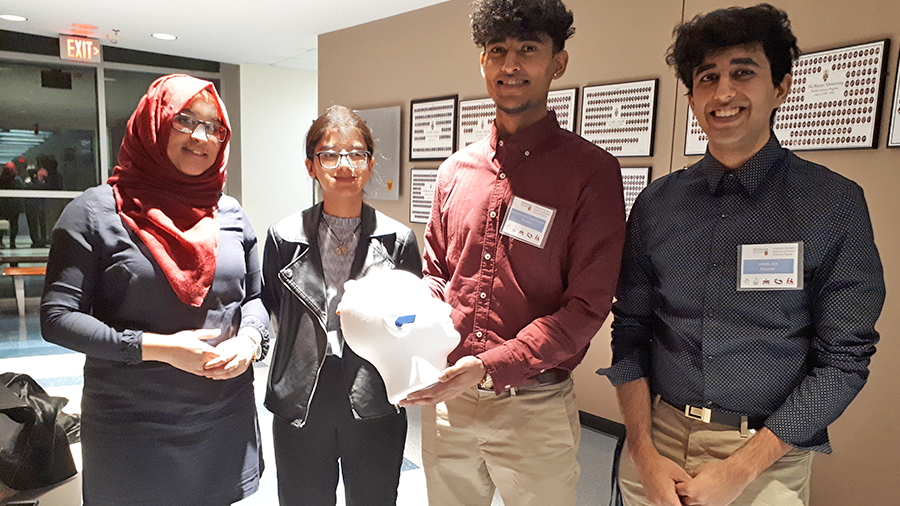
Team 28 – Mariam Dawood, Gurleen Dulai, Varun Jain and Mithil Venkateshkumar, presented “CardioSafe – Early Onset Coronary Artery Disease Detection.” This device detects early signs of a heart attack by identifying irregular heartbeats and changes in body temperature and blood-oxygen levels. The team explains that coronary artery disease is the leading cause of death in both Canada and the U.S, and 90% of Canadians have at least one risk factor. When asked what the team enjoyed most about this project, they mention using their problem-solving skills, learning various programming languages and always being able to learn something new from one another. It’s clear that this team is truly interested in making improvements in the biomedical field while continuing to push the envelope.
Team member Mariam states “just because something’s already been done, doesn’t mean you can’t do it better!”
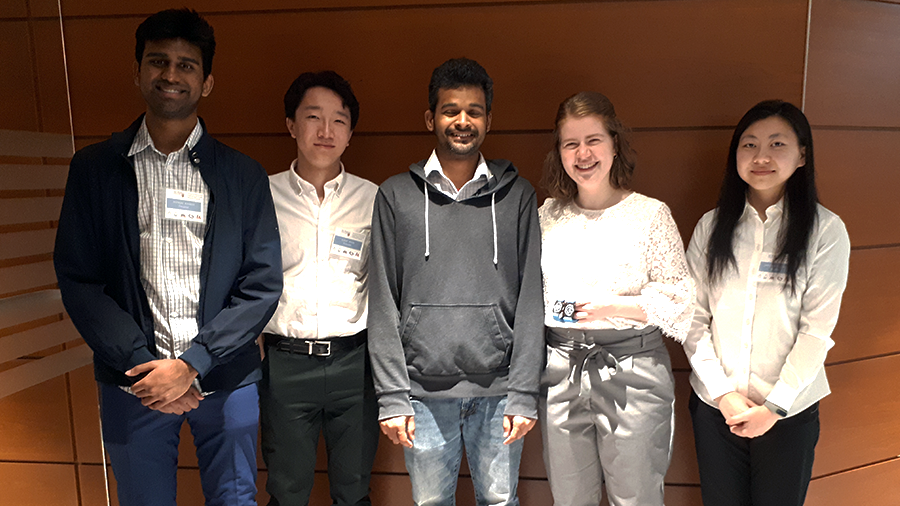
One team used the importance of mental health as its inspiration. Meet Team 4: Emma Lippert, Carrie Men, Shammo Rahman and Albert Wang. Their project is the “Life-Emulating Emotion Linked Assistant (LEELA).” And, yes, this project is named after our very own Lab Tech, Leela Pilli! LEELA is a stress-observing wrist band that monitors and detects stress-induced changes in your vitals. Once these changes are detected, LEELA emits light vibrations on certain pressure points on the wrist. Studies suggest that massaging given pressure points on the wrist can help reduce stress and anxiety. To take it one step further, LEELA has a screen (similar to a watch face), and the user can download videos and images to this screen via a mobile device. The user can also add audio and voice clips. As the user’s stress and anxiety increases, they are met with soothing vibrations on their wrist followed by motivational audio clips and images.
With so many cutting-edge ideas presented, it’s hard to highlight just a couple. Other concepts, however, include “A2Be Alert; Staying Awake Behind the Wheel,” a pair of glasses that vibrates when it detects the user’s head tilting forward due to drowsiness. There’s also “The Power Glove: Your Personal Boxing Trainer,” and “The PhysioFlex – Physiotherapy Made Fun.”
During a night filled with varying ideas and concepts, there remains one constant: a group of students that is driven, innovative and forward-thinking, ready to change the world one solution at a time.


